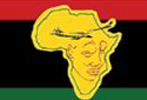The author and journalist shares a reading list from her time as The New York Times’ Bureau Chief for West Africa.

In my new book, In Pursuit of Disobedient Women, I wrote about my experiences moving my family from the US to Senegal to become the West Africa bureau chief for The New York Times, a position that put me in charge of coverage of more than two dozen countries. The book chronicles my new family dynamic as I became the main breadwinner and the extraordinary lives and struggles of women I encountered who were navigating patriarchal societies where men ruled nearly every aspect of life. My book also discusses my efforts to get an American audience subsumed by the age of Trump and inspired by a feminist revival to pay attention to incredible women, including conscripted teen-girl suicide bombers who bravely defied terrorists, and young women in small villages shaking up social norms by getting out of bad marriages because they wanted to be loved.
To help me get to know my new area of coverage as I moved from New York City to Dakar, I started by reading the criticism of reporters from the West who parachute into African countries and fumble when they fall into a clichéd line of reporting. The best of those critiques is the essay in Granta, “How to Write About Africa” by Binyavanga Wainaina. Many readers of this blog know the essay well. But it’s worth a re-read. Over the course of my nearly four years on the beat, I returned to this piece many times as a gut check to make sure I wasn’t falling into using stereotypes in not just the way I went about my writing and reporting, but also in the stories I chose to pursue.
A young student picnicking with his girlfriend in the zoo in Maiduguri, Nigeria, led me to the poet, novelist, and surgeon Lenrie Peters, who was born in the Gambia and later moved to Sierra Leone. I was trying to put together a story on dating relationships in Maiduguri, where the Boko Haram movement began, so that led me to a few very intimate discussions with strangers. I asked this particular couple how they met, and the young man, Kefas, explained that he had tried to court the woman, Ruth, for the better part of a year at the University of Maiduguri, but she couldn’t make up her mind whether she liked him. Kefas had recited one of Mr. Peters’s poems, “The Fence,” to Ruth to explain the torture his heart was going through, being kept on the fence while he waited for her to decide whether she loved him. It won her over. The poem, along with other great work, can be found in A Selection of African Poetry, from K.E. Senanu and T. Longman.
One of my favorite stories I wrote involved camping out with Fulani pastoralists in Gombe State in Nigeria. I had seen numerous articles in the Nigerian media that seemed biased against the herders, and I wanted to hear their point of view about an explosion of violence between nomadic cattlemen and farmers as they fought over land—a manifestation of massively shifting global forces (climate change, a growing population, a rise in extremism and over-development)—even as their lifestyle remained largely the same as it has been for centuries. Author Anna Badkhen wrote about nomadic herders in her book, Walking with Abel, but my favorite piece of her writing is an essay published last year in The New York Review of Books, “‘Almost All of Us Here Are Widows’: Searching for Words in Mali,” which so poignantly captures the senselessness of violence in these battles and the lives upended for those who survive.
Late in my stint in West Africa I started reading the Senegalese novelist, screenwriter, and journalist Boubacar Boris Diop. I was embarrassed I hadn’t read him sooner. His writing on the Rwanda genocide, Murambi, The Book of Bones, first published in France in 2000, blends the story of victims with that of one persecutor. But my favorite is his book of essays, Africa Beyond the Mirror, with topics that criticize how Africa is portrayed in the media and, among other things, praise for Cheikh Anta Diop, the Senegalese historian of precolonial culture in Africa. My favorite is a heart-breaking and brutally honest chapter that is a letter from Mr. Diop to a friend discussing the tragic shipwreck of the Joola in Senegal in 1992 when more than 1,800 people were killed. Mr. Diop is now engaged in a critical effort to get African authors to write in their own languages instead of colonial languages.

